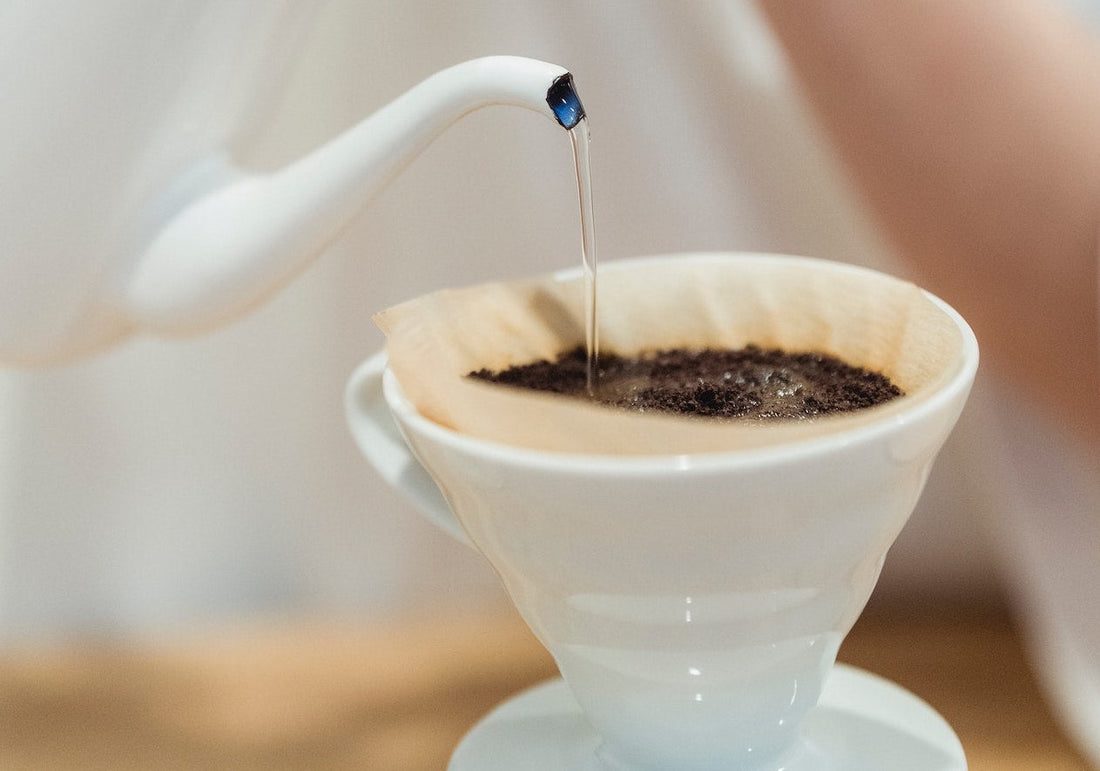
The Role of Water Quality in Coffee Brewing

As a specialty coffee roaster, one of the questions we often get asked about is: "Why does my coffee taste different at home despite using the same coffee beans?"
When it comes to brewing the perfect cup of coffee, it's easy to focus solely on the beans, grind size, and brewing method. However, there's a crucial element that often goes overlooked but plays a significant role in bringing out the flavour and aroma of your brew: water quality.
The impact of water quality is not just technical; it's sensory. Using the right water can enhance the clarity, sweetness, acidity, and body of your coffee. Whereas poor water quality can mask the nuanced flavours of specialty beans. In this article, we will explain the importance of water composition and how to make sure you have the right water to brew the perfect cup.
How Coffee Extraction Works.
When water comes into contact with coffee grounds, it triggers a process where the soluble compounds within the coffee are dissolved, creating the flavours, aromas, and textures we look for. The goal is to achieve balanced extraction, where the desirable compounds are extracted without over extracting bitter or astringent elements.
Water Composition Matters.
The composition of the water you use directly affects how efficiently it extracts those compounds from the coffee grounds. Some components of water that can impact your brew include:
- Minerals and Ions: The amount of minerals such as calcium, magnesium, and sodium varies in water. These minerals interact with coffee molecules and influence the extraction process. Hard water (rich in minerals) can enhance flavour extraction, while soft water might lead to under-extraction.
- pH Level: The pH level of water affects the solubility of coffee compounds. Ideally, water should be slightly acidic (pH 6.5-7.5) to achieve optimal extraction. Extremely high or low pH levels can result in imbalanced flavours.
- Total Dissolved Solids (TDS): TDS refers to the amount of dissolved minerals and compounds in water. Water with an appropriate TDS level (between 100-250 ppm) can help extract coffee flavours efficiently.
Finding the Right Water
Achieving the right water quality for your coffee requires a balance between various factors. While some minerals enhance extraction, an excess can lead to mineral buildup in your coffee equipment. These are what you can do to find the sweet spot:
- Understanding Your Water Source: Know your tap water's mineral content and pH level. If you're unsure, consider using a water testing kit.
- Filtered Water: If your tap water has an undesirable mineral composition, consider using a mineralized water filter from brands like BWT. Filters can remove impurities and balance mineral content.
- Water Softeners: If your water is excessively hard, consider using water softeners or mineral filters to adjust the mineral content.
- Adjustment: You can also use mineral additives to tailor water to specific brewing methods and coffee types.
The role of water in brewing is a subtle yet profound one. Its influence on coffee extraction and flavour development is a reminder that crafting a remarkable cup of coffee is a delicate process. By paying attention to water quality, you're conducting a symphony of elements that result in a harmonious and delightful coffee experience. So, the next time you brew, remember that your choice of water is as vital as the beans themselves.
